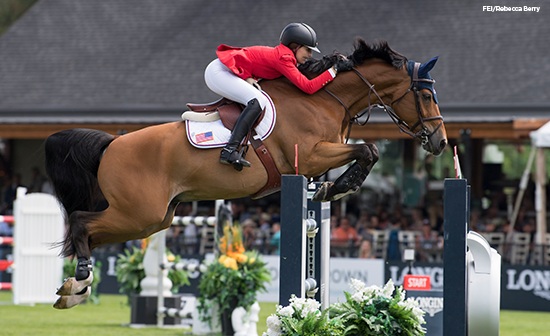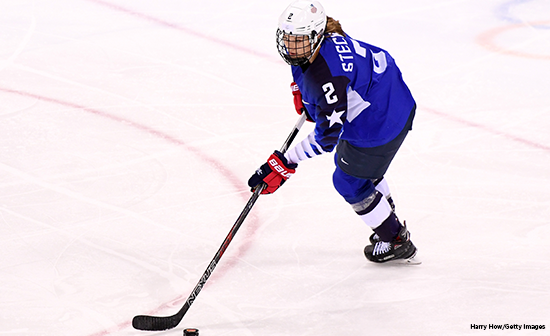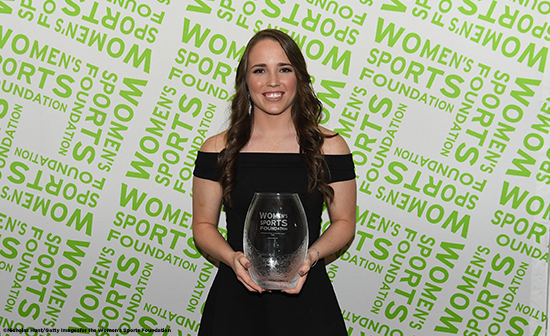At age 19, Team USA’s Lucy Deslauriers is making a name for herself as a world-class show jumper – with the help of Hester, her beloved 14-year-old Belgian gelding. Being an equestrian athlete is a longstanding family tradition. Her Quebec-born father Mario Deslauriers, 54, represented Canada at the 1984 and 1988 Olympics, and is still riding. If everything goes perfectly, these two could compete against each other at the 2020 Olympics in Tokyo.
We caught up with Deslauriers just before she took part in the Longine FEI Jumping Nations Cup of Canada at Langley’s Thunderbird Show Park on June 2. Facing experienced riders from Canada, Ireland, Israel, and Mexico, this University of Pennsylvania student, who hails from New York City, helped the U.S. qualify for the Nations Cup final in Barcelona in October. Deslauriers will also serve as the traveling reserve to the U.S. team at the Pan American Games in Lima in August.
WSF: What are your personal career highlights so far?
LD: Last year, I was selected for a number of Nations Cups on the senior team. I travelled to Dublin with the U.S., as well as competing at the Spruce Meadows Masters. Also, I competed at the Nations Cup final in Barcelona last year too and had a pretty strong performance. So I think those were some of the things I’m most proud of.
WSF: If asked, why would you recommend show jumping to other young women?
LD: First of all, the bond with the horse. The fact that we get to compete alongside these amazing animals is something you can’t replicate in any other sport, especially at an Olympic level. Also, there’s a lot to be said for getting to compete against men at the same level, especially in today’s day and age. I think that’s really empowering and important for young girls. And there’s a huge age range. I’m probably the youngest at this horse show, but when you get out there, we all have the same job.
WSF: How does it feel to compete against your dad?
LD: It’s so much fun. I’m really lucky. He’s taught me almost everything I know in this sport. I grew up traveling with him and my mom Lisa, as they both competed at the Nations Cup level and various championships around the world. So I saw firsthand what it was like for them. To be able to do it against him now is definitely a dream come true. We’re both fierce competitors, but it adds to the fun when we get to do it against each other.
WSF: What do you do for health and fitness besides riding?
LD: I think more and more, you’re seeing the top equestrians really focusing on fitness and health. So I take different Pilates classes. I like to box. I have a trainer when I’m home in New York City, and we work on interval training. I do all sorts of workout classes. Sometimes I go for a run or do stuff in the gym by myself. I just make sure that I’m feeling fit and strong and eating well. I am a pescatarian, so I don’t eat any meat. It’s a very plant-based diet for strength and overall health.
WSF: What would it mean to you to compete in Tokyo next year?
LD: It’s a huge dream of mine. I’ve watched probably all the Olympics since I was born! It would mean everything. Obviously, it would be surreal to happen for me at this age. At the same time, we’re lucky that you can do this sport for a really long time. Even if it doesn’t happen, there are more dreams and there are more Olympics down the road.
Lucas Aykroyd is a member of the WSF Digital Contributor Team. His work has appeared in publications that include the New York Times.



